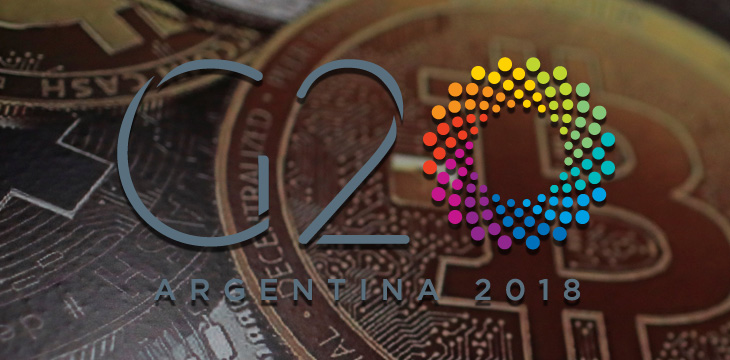|
Getting your Trinity Audio player ready...
|
Finance leaders across the world’s 20 largest economies are expected to recommend greater measures for cryptocurrency asset monitoring to be adopted by international standards bodies, citing concerns over the impact of virtual currencies on the wider financial system.
Ahead of their meeting scheduled for March 20 in Buenos Aires, Argentina, a draft communique outlined the member countries’ proposals, ostensibly in a bid to reduce threats to financial stability posed by cryptocurrencies like legacy Bitcoin (BTC), Bitcoin Cash, and Ether.
According to the text of the communique, the finance leaders, comprised of G20 finance ministers and central bank governors, recognise the benefits of cryptocurrency, which they suggest could lead to efficiency improvements in future, as well as providing solutions for the underbanked.
However, flagging potential risks with the currencies and technologies, the communique raises questions about whether more multilateral measures may be required to regulate the sector.
“Cryptocurrencies, however, raise issues with respect to consumer and investor protection, tax evasion, money laundering and terrorist financing. At some point they could have financial stability implications,” according to the communique.
The G20 financial leaders said they “agree that international standard setting bodies strengthen their monitoring of crypto-assets and their risks… and assess whether multilateral responses may be needed.”
Regulators and central bank governors worldwide have raised concerns with cryptocurrencies, namely their ability to be used in terrorist financing and money laundering, in the current largely unregulated environment.
Further, there have been concerns about whether cryptocurrencies could pose a challenge to the mainstream financial system, lead to significant consumer losses, and even undermine trust in global fiat currency.
As a result, regulators from Japan, South Korea and China to France, Germany, the European Union and others have all introduced or are considering proposals for greater regulatory powers and standards for cryptocurrencies.
Last week, the U.S. Securities and Exchange Commission suggested cryptocurrency exchanges should be registered and overseen by regulators, with the current position likely to give consumers the false impression of regulation.
With the confirmation of this latest drive towards international standard for cryptocurrencies expected later this month, it remains to be seen whether the measures will result in any firm proposals for international crypto regulation.

 02-13-2026
02-13-2026 




